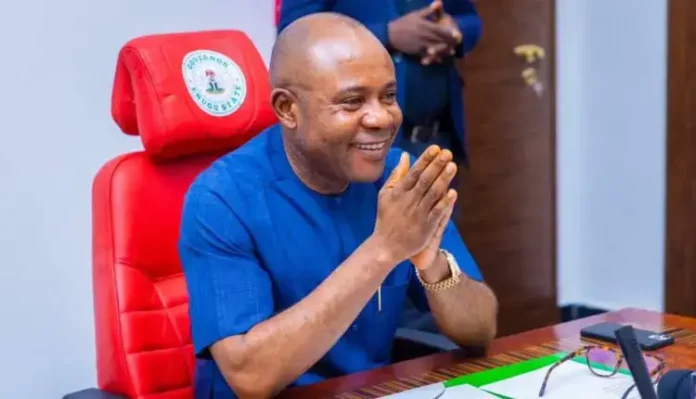|
Listen to article
|
As part of efforts to make the state the preferred destination for investments in the country, the government of Enugu State has announced that it has concluded plans to embark on a massive review of the state’s laws and the enactment of new ones where necessary.
The Dr. Peter Mbah’s administration in the state is also prioritising the establishment of integrated smart schools in the 260 wards of the state to transform the education sector from mere social service delivery institutions to skill acquisition providing institutions.
The State Attorney-General and Commissioner for Justice, Kingsley Udeh, made this disclosure while speaking at the end of the State’s Executive Council Meeting.
Udeh, said the Council had resolved to embark on massive law reviews to make the state more investment-friendly, after he signed the Enugu State Electricity Law 2023.
‘We are aware that investors will always look for where the judicial system is strong enough. They want to be sure that if a dispute arises from business to business or business with the government, they would get quick dispensation of justice and that justice when given in the form of judgment would be obeyed and enforced. This is what the government is working on,’ he said.
Read Also: Human Capital Development: Group Backs Uzodinma’s Re-Election
Udeh, said the governor Peter Mbah-led administration was also digitising the judiciary from filing of cases up to decision-making, adding that the target was to ensure that cases which used to take the court five years to seven years to dispense with could now be concluded in a matter of a year or less.
Also speaking, the Commissioner for Education, Ndubueze Mbah, said at least 10 of the integrated and smart schools earmarked for each of the electoral wards in the country would now be completed before the end of 2023, adding that the first of such schools was nearing completion.
“The rationale for the schools is to establish a structure that would deliver the Nigerian basic education curriculum, not one where our children finish primary six without completing basic education because they are not able to progress to secondary school,” he added.
He noted that the curriculum model that would drive the schools would be based on what we call an experiential learning curriculum model in line with the governor’s Manifesto and Statement of Purpose, which is to ensure that no child will be 18 years old and not have acquired skills.
























